Alberta
Alberta backs Saskatchewan in court battle defending parental consent for ‘pronoun changes’
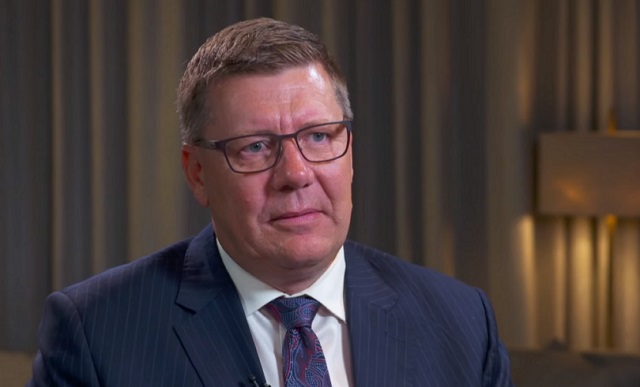
From LifeSiteNews
‘Saskatchewan and Alberta agree that the key figures in children’s lives are their parents, and our provinces are both committed to supporting families and children so that they can work through unique needs together,’ the provinces wrote in a joint letter in defense of parental rights.
Alberta has announced its support of Saskatchewan’s policy requiring parental consent for children to go by different pronouns at school amid a lawsuit against the policy by an LGBT activist group.
On April 9, Alberta Minister of Justice and Attorney General Mickey Amery and Saskatchewan Minister of Justice and Attorney General Bronwyn Eyre revealed that Alberta will intervene in Saskatchewan’s Parents’ Bill of Rights case challenging their new pro-family laws.
“Saskatchewan and Alberta agree that the key figures in children’s lives are their parents, and our provinces are both committed to supporting families and children so that they can work through unique needs together,” the joint statement read.
“Notifying parents and requiring their consent before a child’s name or pronouns can be changed in schools, and before classroom discussions about gender identity and other sensitive subjects occur, ensures that the parent-child relationship is respected and paramount,” it continued.
The pronoun policy is just one part of Saskatchewan’s new “Parental Inclusion and Consent Policies,” which also include provisions that ensure parents are allowed to opt their kids out of sex-ed, and that third-party presentations from groups such as Planned Parenthood will be prohibited from taking place.
After the policies were put forth, LGBT activist group UR Pride Centre for Sexuality and Gender Diversity at the University of Regina, represented by Egale Canada, filed a lawsuit to reverse the pro-family laws.
While a judge has ruled in favor of the LGBT group, Saskatchewan Premier Scott Moe announced in response that he will invoke his government’s notwithstanding clause to protect the legislation from the courts.
The notwithstanding clause, embedded in section 33 of the Canadian Charter of Rights and Freedoms, allows provinces to temporarily override sections of the Charter to protect new laws from being scrapped while higher courts make a determination on the constitutionality of the law.
The case is set to be heard in the Saskatchewan Court of Appeal. During the case, Saskatchewan will now be supported by Alberta, which has committed to intervene in the appeal.
“Alberta will seek to advance legal arguments that Saskatchewan’s use of section 33 of the Charter (the Parliamentary Supremacy Clause) should have prevented Saskatchewan’s Court of King’s Bench from reviewing the constitutionality of the Education (Parent’s Bill of Rights) Amendment Act, 2023 legislation,” the province promised.
“This case has the potential to impact not only parental rights across Canada, but also the application of the Parliamentary Supremacy Clause, which has been an integral piece of the Canadian Charter of Rights and Freedoms and the Constitution of Canada since 1982,” it declared.
Similar to Saskatchewan, Alberta recently introduced its much-anticipated pro-family legislation protecting children and parental rights from the worst results of transgender ideology, including banning doctors from medically ‘transitioning’ children, requiring parental consent for pronoun changes in school, and barring men claiming to be women from women’s sports.
Recent surveys have shown that Moe is acting in the interest of Saskatchewan parents by introducing legislation protecting school children from LGBT propaganda.
According to an August 2023 survey, 86 percent of Saskatchewan participants advocated for parental rights, supporting the province’s new approach to the LGBT agenda in schools.
Furthermore, over 40,000 Canadians have pledged their support for Saskatchewan’s fight for parental rights in the classroom, also calling on all other provinces to follow suit.
Additionally, a Saskatchewan teacher wishing to remain anonymous previously told LifeSiteNews that she feels guilty about keeping secrets from parents and supports the decision to keep parents informed.
“I fear that we are not supporting students or parents when we keep secrets,” she explained. “We have many students using alternate names, which sometimes changes frequently during the year, and then are asked by parents if we were aware of the changes after the fact. I feel responsible for keeping the secret and I don’t think it’s fair. I think schools are already taking on too many ‘parent roles’ and it’s important that parents play the ‘parent role’ not teachers!”
Alberta
Alberta awash in corporate welfare
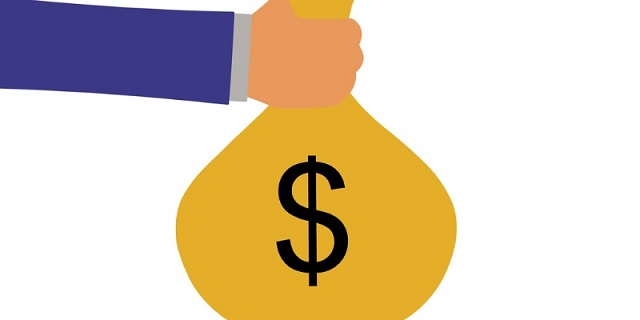
From the Fraser Institute
By Matthew Lau
To understand Ottawa’s negative impact on Alberta’s economy and living standards, juxtapose two recent pieces of data.
First, in July the Trudeau government made three separate “economic development” spending announcements in Alberta, totalling more than $80 million and affecting 37 different projects related to the “green economy,” clean technology and agriculture. And second, as noted in a new essay by Fraser Institute senior fellow Kenneth Green, inflation-adjusted business investment (excluding residential structures) in Canada’s extraction sector (mining, quarrying, oil and gas) fell 51.2 per cent from 2014 to 2022.
The productivity gains that raise living standards and improve economic conditions rely on business investment. But business investment in Canada has declined over the past decade and total economic growth per person (inflation-adjusted) from Q3-2015 through to Q1-2024 has been less than 1 per cent versus robust growth of nearly 16 per cent in the United States over the same period.
For Canada’s extraction sector, as Green documents, federal policies—new fuel regulations, extended review processes on major infrastructure projects, an effective ban on oil shipments on British Columbia’s northern coast, a hard greenhouse gas emissions cap targeting oil and gas, and other regulatory initiatives—are largely to blame for the massive decline in investment.
Meanwhile, as Ottawa impedes private investment, its latest bundle of economic development announcements underscores its strategy to have government take the lead in allocating economic resources, whether for infrastructure and public institutions or for corporate welfare to private companies.
Consider these federally-subsidized projects.
A gas cloud imaging company received $4.1 million from taxpayers to expand marketing, operations and product development. The Battery Metals Association of Canada received $850,000 to “support growth of the battery metals sector in Western Canada by enhancing collaboration and education stakeholders.” A food manufacturer in Lethbridge received $5.2 million to increase production of plant-based protein products. Ermineskin Cree Nation received nearly $400,000 for a feasibility study for a new solar farm. The Town of Coronation received almost $900,000 to renovate and retrofit two buildings into a business incubator. The Petroleum Technology Alliance Canada received $400,000 for marketing and other support to help boost clean technology product exports. And so on.
When the Trudeau government announced all this corporate welfare and spending, it naturally claimed it create economic growth and good jobs. But corporate welfare doesn’t create growth and good jobs, it only directs resources (including labour) to subsidized sectors and businesses and away from sectors and businesses that must be more heavily taxed to support the subsidies. The effect of government initiatives that reduce private investment and replace it with government spending is a net economic loss.
As 20th-century business and economics journalist Henry Hazlitt put it, the case for government directing investment (instead of the private sector) relies on politicians and bureaucrats—who did not earn the money and to whom the money does not belong—investing that money wisely and with almost perfect foresight. Of course, that’s preposterous.
Alas, this replacement of private-sector investment with public spending is happening not only in Alberta but across Canada today due to the Trudeau government’s fiscal policies. Lower productivity and lower living standards, the data show, are the unhappy results.
Author:
Alberta
‘Fireworks’ As Defence Opens Case In Coutts Two Trial
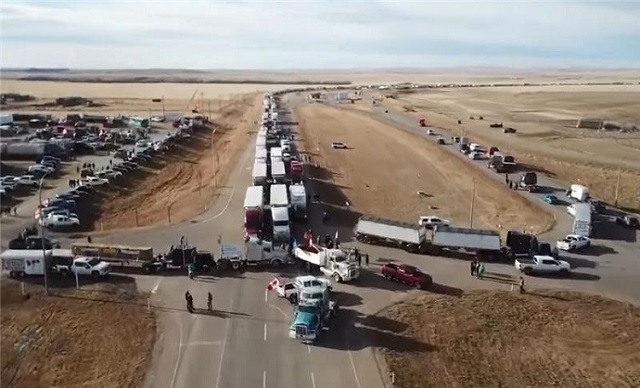
From the Frontier Centre for Public Policy
By Ray McGinnis
Anthony Olienick and Chris Carbert are on trial for conspiracy to commit murder and firearms charges in relation to the Coutts Blockade into mid-February 2022. In opening her case before a Lethbridge, AB, jury on July 11, Olienick’s lawyer, Marilyn Burns stated “This is a political, criminal trial that is un Canadian.” She told the jury, “You will be shocked, and at the very least, disappointed with how Canada’s own RCMP conducted themselves during and after the Coutts protest,” as she summarized officers’ testimony during presentation of the Crown’s case. Burns also contended that “the conduct of Alberta’s provincial government and Canada’s federal government are entwined with the RCMP.” The arrests of the Coutts Four on the night of February 13 and noon hour of February 14, were key events in a decision by the Clerk of the Privy Council, Janice Charette, and the National Security Advisor to the Prime Minister, Jody Thomas, to advise Prime Minister Justin Trudeau to invoke the Emergencies Act. Chief Justice Paul Rouleau, in submitting his Public Order Emergency Commission Report to Parliament on February 17, 2023, also cited events at the Coutts Blockade as key to his conclusion that the government was justified in invoking the Emergencies Act.
Justice David Labrenz cautioned attorney Burns regarding her language, after Crown prosecutor Stephen Johnson objected to some of the language in the opening statement of Olienick’s counsel. Futher discussion about the appropriateness of attorney Burns’ statement to the jury is behind a publication ban, as discussions occurred without the jury present.
Justice Labrenz told the jury on July 12, “I would remind you that the presumption of innocence means that both the accused are cloaked with that presumption, unless the Crown proves beyond a reasonable doubt the essential elements of the charge(s).” He further clarified what should result if the jurors were uncertain about which narrative to believe: the account by the Crown, or the account from the accused lawyers. Labrenz stated that such ambivalence must lead to an acquittal; As such a degree of uncertainty regarding which case to trust in does not meet the “beyond a reasonable doubt” threshold for a conviction.”
On July 15, 2024, a Lethbridge jury heard evidence from a former employer of Olienicks’ named Brian Lambert. He stated that he had tasked Olienick run his sandstone quarry and mining business. He was a business partner with Olienick. In that capacity, Olienick made use of what Lambert referred to as “little firecrackers,” to quarry the sandstone and reduce it in size. Reducing the size of the stone renders it manageable to get refined and repurposed so it could be sold to buyers of stone for other uses (building construction, patio stones, etc.) Lambert explained that the “firecrackers” were “explosive devices” packaged within tubing and pipes that could also be used for plumbing. He detailed how “You make them out of ordinary plumbing pipe and use some kind of propellant like shotgun powder…” Lambert explained that the length of the pipe “…depended on how big a hole or how large a piece of stone you were going to crack. The one I saw was about six inches long … maybe an inch in diameter.”
One of Olienick’s charges is “unlawful possession of an explosive device for a dangerous purpose.” The principal evidence offered up by RCMP to the Crown is what the officers depicted as “pipe bombs” which they obtained at the residence of Anthony Olienick in Claresholm, Alberta, about a two-hour drive from Coutts. Officers entered his home after he was arrested the night of February 13, 2022. Lambert’s testimony offers a plausible common use for the “firecrackers” the RCMP referred to as “pipe bombs.” Lambert added, these “firecrackers” have a firecracker fuse, and in the world of “explosive” they are “no big deal.”
Fellow accused, Chris Carbert, is does not face the additional charge of unlawful possession of explosives for a dangerous purpose. This is the first full week of the case for the defence. The trial began on June 6 when the Crown began presenting its case.
Ray McGinnis is a Senior Fellow with the Frontier Centre for Public Policy who recently attended several days of testimony at the Coutts Two trial.
-

 Brownstone Institute1 day ago
Brownstone Institute1 day agoThe Media Refuses to Accept Covid Reality
-

 Alberta1 day ago
Alberta1 day ago‘Fireworks’ As Defence Opens Case In Coutts Two Trial
-

 National1 day ago
National1 day agoLiberals offer no response as Conservative MP calls Trudeau a ‘liar’ for an hour straight
-
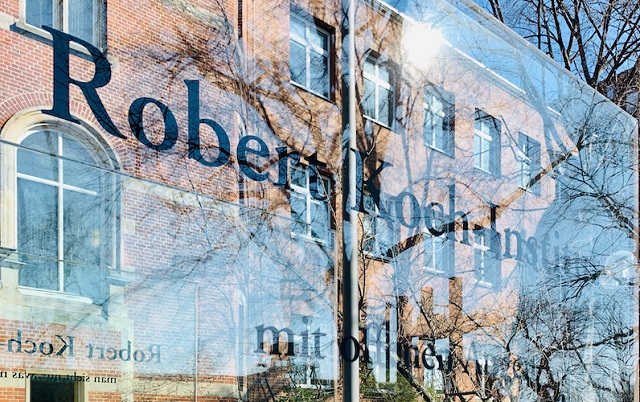
 COVID-191 day ago
COVID-191 day agoLeaked documents: German gov’t lied about shots preventing COVID, knew lockdowns did more harm than good
-

 Business1 day ago
Business1 day agoFederal government seems committed to killing investment in Canada
-

 International1 day ago
International1 day agoSwitzerland’s new portable suicide ‘pod’ set to claim its first life ‘soon’
-

 Business1 day ago
Business1 day agoEstonia’s solution to Canada’s stagnating economic growth
-
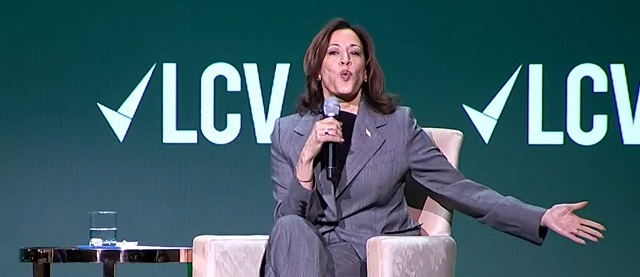
 Economy1 day ago
Economy1 day agoKamala Harris’ Energy Policy Catalog Is Full Of Whoppers






